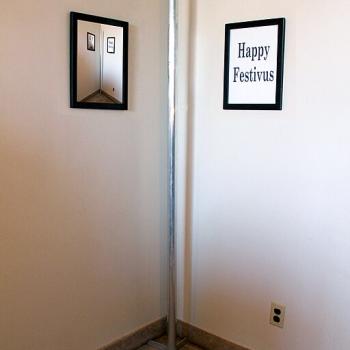Like Joyce Myers says, "If you're afraid of something, what do you do? You do it afraid." Then I learned in the word of God, "We don't have a spirit of fear, but a spirit of power and love and self-discipline" (2 Timothy 1:7). I learned how to use the Bible at the heart of my life, how to meditate on the scripture and pull myself together through God's Word.
As an elite gymnast, you have to find a source of strength. I'm in Beijing, China, far away from home and my family, representing the United States. That's a lot of pressure for a thirteen-year-old. But God was faithful and He saw me through. I had to learn to trust and lean on Him. I had to trust God for my body and for healing, for love and direction and peace.
I don't know how the other girls did what they did, because I know that it was God inside of me that did my part. I would step out in faith and I would know that if God did not show up, everything would fall apart. He worked through me every day-and it was awesome.
You've mentioned issues related to food and the body. Gymnastics can be brutal on the body. The strains and expectations placed on young girls can be especially dangerous. How did you, as a Christian, deal with the negative attitudes toward the body.
During my gymnastics career, I didn't know any different. I thought it was normal. You beat your body every day, and ice your body every night. Toward the end of my career, every night I had to ice both ankles, both knees, both hips, my lower back, my upper back, my shoulders. I had injuries everywhere.
After I came back from Europe and retired, I went to the doctor and he told me that I had been sick with mono for two months. They did blood work on me, and I was a mess in every way. I'd had no idea how sick I was. The doctor said that if I had continued -- and I would have continued, if God had not stopped me -- there was no telling how much permanent damage I might have done to myself. So I am very thankful that God saved me and saved my health.
Is it worth it, if you have to kill your body in order to be the best? No. I'll let my kids do gymnastics if they want, but I will not let them train for the Olympics to the point of becoming unhealthy.
But at the time, you're a kid and you don't understand. Your family does the best they can to protect you while helping you pursue your dream. It's a fine line and a really hard call. When you're training 8 hours a day and you're 13 years old, injuries will take their toll.
Even now, I am trusting God that I am whole. I still nurse injuries and ice my joints. If I were speaking to an athlete now, I would tell her this. First of all, your coach is not your parent. You and God are a team, and you shouldn't let others dictate your decisions. The Lord will speak to you about your body. You can work yourself through terrible injuries, but you should listen to your heart and take care of yourself. You only have one body for your whole life. But if you put yourself into the hands of a coach who only cares about you if you win, and doesn't care whether you'll be in pain for the rest of your life, then you should know that they're not thinking about your best interests. They have their own agendas.
Rhythmic gymnasts face extraordinary pressure to be thin. It's nice if you're talented and can do the best tricks, but if you're not skin and bones, if you're an ounce overweight, you're not going anywhere in the sport. In rhythmic gymnastics especially, you have to be ultra-thin and have no body fat. The motto of rhythmic gymnastics was, "You are what you weigh."
At the World Championships in Paris, some of the coaches who were assigned to me-not my personal coaches, but coaches from countries like Spain-said they would only let me compete on a certain event if I lost 5 pounds in the next 3 days. Since I didn't lose the weight, they pulled me from the event. It's ironic. My last competition, World Championships, I didn't get to compete in one of my events because I didn't lose the pounds.
How did these pressures related to weight and the body affect you?
At the time my career ended, I was under 105 lbs at 5'5", and I was by far the heaviest on the team. I even went below 100 pounds at one point on the tour and I was still, according to my coaches, not thin enough.
When I looked in the mirror, all I saw was someone who was insufficient. I didn't have an eating disorder at the time, because they watched and limited how we ate. I was so hungry from working out, but there was always the pressure of becoming thinner and thinner. I was thin and athletic, but I had a more womanly figure than the other girls. We were all around sixteen years of age, and my body was really fighting the whole development process.





